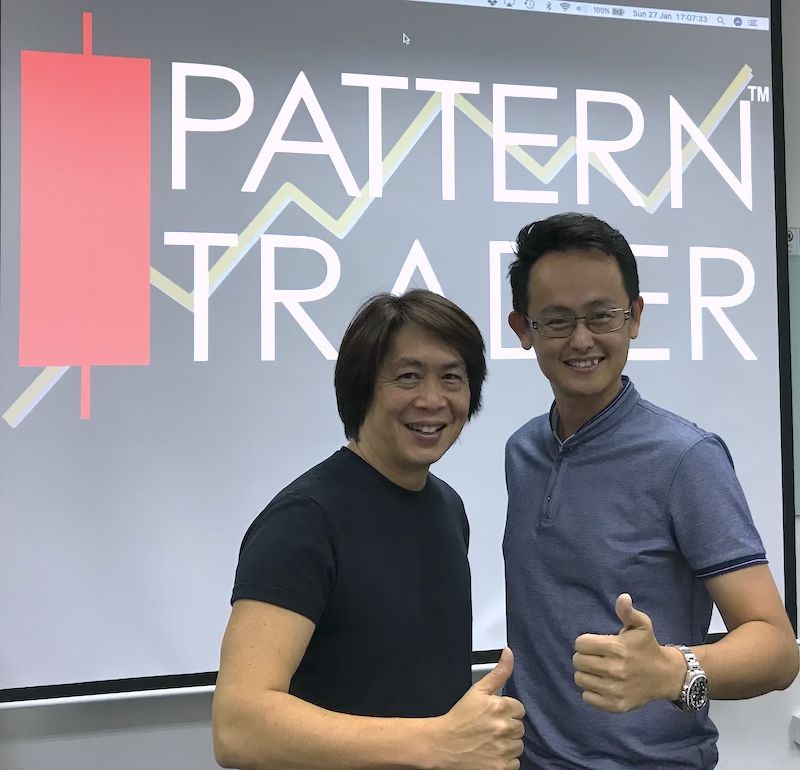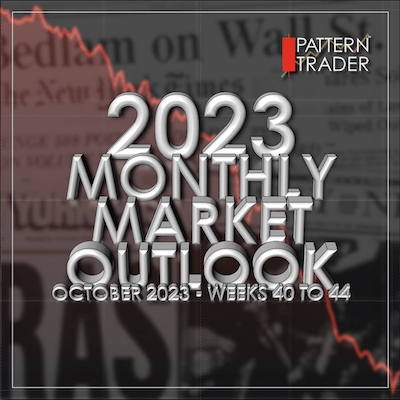Trading and getting no joy? You should read this … and get real.
Much has been written about Online Trading and how it can become your dream job or how it has made millionaires of so many or how you can achieve financial freedom to realise the life of dreams.
Seriously?

I can’t say, without lying, that it is not all lies. There is some truth to it but what they are not telling you is that it is not as easy as many think it is. What they don’t tell you are the difficulties and challenges that one goes through before they can even sniff that dream. Till then it is a freaking nightmare that most will give up on. It is hell on those who can’t afford the losses. It is psychologically traumatic for those who are not prepared for the journey that has left many a victim scarred for life.
So just what is it about the financial markets that draw so many to it? Why do people think it is as easy as simply knowing a few “tricks” or having some “secret formula” or a “holy grail strategy”? How is it that in spite of the many horror stories, people still want to believe that they can make their dreams come true in the financial markets when it has been the graveyard of many an aspiration?

The reason for this misconception or this belief is that we’ve been indoctrinated with so much of this misleading information that we actually believe in it. Like any good advertising campaign, they’ve shouted it loud enough and often enough that the influence is now complete. So much so that when the truth is in your face, you choose to believe in what you’ve been exposed to. Such is the nature of history – history is written by the victors and in time, it is accepted as fact regardless of the bare naked truth before our eyes.
Take Thomas Edison and General Electric for example.

We were taught that Edison discovered electricity when in fact, it was Nicola Tesla and Westinghouse that discovered Alternating Current (AC). Edison has been, in some cases, credited with the discovery of Direct Current (DC) but even that is not the historical fact. DC was discovered by Alessandro Volta and Ganz. Edison created the lightbulb that uses DC. And even that discovery was contentious and had to be fought out in court to have it validated on a dubious loophole. However, when you have influential backers like the Vanderbilt Family, JP Morgan and Spencer Trask, a company like General Electric to vouch for you, history can easily be re-written in such a way that people eventually associate Edison with the discovery of electricity.
Such is the nature of the financial industry. Even more so today as social media plays an influential part in what we read as “fact”. The mainstream media and online financial websites have had a huge influence on how we perceive the financial market. Without going into the manipulative nature of media reports, let’s take one fact that most don’t even consider – Trading versus Investing.

When reading online articles, one doesn’t consider if the information is with regard to investing or trading. The articles aren’t going to spoon feed you with such details as most of such articles are meant to manipulate the masses. From my own observations, more than 90% of the stuff on the ‘net are investor related materials if they are from credible financial sites. Very little is about trading and the few bits of trading information is always very technical, rather than useful.
The reports talk about the bullish or bearish nature of so-and-so and that this is a “buy” and that is a “sell”, that this is a serious warning sign or that there is nothing to worry about and my favourite of them all – that this will go to that price and the market will hit such-and-such a level, begging me to ask where on earth did these people get such psychic powers to be able to tell the future with such an authority. One headline that really got me laughing was “Those who sit on the side are going to regret it for the rest of their lives“. Really? What is there to regret when there is absolutely no chance of losing money if you don’t participate?
These reports play on greed, fear and the shame of missing out, knowing the influential power that media has over the masses. Such manipulation is not useful to the trader at all but can sway prices over a longer period of time. That’s why we get knee jerk reactions that don’t make sense in the short term but trends that make absolute sense in the longer term.
That’s where short-term traders get caught. They’re reading manipulative investing stuff that will make sense in the longer term but they take the quick trade during the irrational knee jerk which usually goes in the wrong direction. This has given us that old favourite saying, “Buy the rumour, sell the news“. Amateurs always trade on news whereas pros trade outside of the news.
They also confuse investment stops for trading stops. In the first place, the big time investors I know, don’t need stops. So exactly where did the confusion come from?
Answer: Gurus and Authors who don’t know the difference between investing and trading, who employ 5% to 7% stops on their trades because Warren Buffet doesn’t invest more than 5% of his capital on any one investment.
Read that again very carefully and if you don’t get what’s wrong with that picture, you really don’t get anything at all. And you won’t get anything at all (pun intended) except Stopped Out when you should have been making money.

The financial markets are for those who have money who want to make that money work harder. In other words, trading and investing requires money to make money. In other words, if you don’t have money to lose, you shouldn’t be in the financial markets.
It also requires that you have time for it, especially trading. The shocking fact is that there are many people who think that trading profitably is easy and doesn’t require any/much effort to learn, doesn’t require sweat to make it happen and doesn’t take any time to become rich overnight.
That could be another case of confusing investing (passive) with trading (active).
 It amazes me that people can be that gullible, that naive or that ignorant. What amazes me more is that they think that the financial markets can be a panacea to their financial woes.
It amazes me that people can be that gullible, that naive or that ignorant. What amazes me more is that they think that the financial markets can be a panacea to their financial woes.
Having said that, I can’t blame them. That would be wrong and extremely judgemental of me. I’ll let the blame fall squarely on the shoulders who sell that dream.
FACT: The financial markets have ruined more lives than have made lives better.
Once again, we can credit the media and the get-rich-quick programs for creating this illusion. Such programs need to sell seats to keep their seminar business sustainable. To sell seats, it has to be attractive. To make it attractive, they have to hype up the few feel-good stories and the much fewer success stories to create the illusion that this is generally a common norm in the financial markets. Quite like how JP Morgan created the illusion that Edison invented electricity.
In any business, you have to sell. That’s the nature of business. They are doing their job. Are you doing your job before you buy what they are selling?
Do you even know what your job is before you buy anything? (Trick question for those aspiring to become traders.)
QUESTION: How does a mathematical one-size-fit-all strategy work in a market that is too dynamic for absolutes, filled with people with different risk profiles/appetites who are irrationally emotional most of the time in a business that is manipulated beyond any mathematical permutation?
You’re likely to answer that it doesn’t make sense and it is not likely to work. Yet the masses believe that some mathematical permutation based on a series of past closing prices is the magical secret to buy and sell signals that will indicate the future of irrational human behaviour that will move prices. This will simplify the god-forsaken rigours of researching and planning that the professionals take so much effort in doing before taking a trade.
Seriously? One magic pill to beat them all?

TASK: Just spend an hour or two watching Bloomberg or CNBC or any other financial news channel. Then take a little time to surf some dedicated financial websites like MarketWatch, Reuters, API, Knight Ridder, etc. Then see how many reports or articles or commentaries are based on blue and red lines, or buy and sell signals, or candlestick analysis … generally the stuff that’s taught in workshops and best-selling books. Once you’ve done that, maybe you’d have notice the massive amount of macroeconomic news that you’ve been ignoring all this time. Then ask yourself what really matters.
The fact that has been starting you in the face all this time is the one fact you will hate to admit to; That the pros are people who spent years in the best universities to learn this stuff and more years in mentorship in the greatest financial institutions, taught by old and grey veterans who know every dirty trick in the book. These are the same people on the other side of your trade but you choose not to acknowledge it like an ostrich with its head in the sand.
You prefer to think that the little bit of knowledge you got from the internet is your holy grail, that the little magic pill that some keyboard warrior guru sold to you is going to help you beat them all, that some sophisticated mathematical algorithmic trading system is your ticket to get-rich-quick-and-easy and that you can be a millionaire without the work, discipline and effort that all pros put into their craft?
SIDE NOTE: Even if you did get lucky and break a million in a hurry, it won’t last because you still lack the discipline and know how to keep it and make it work harder to grow it.

The Obvious Lie about Online Trading is that you can make money. Well, its not an outright lie but more like a half truth. So what the other half truth?
FACT: You will lose money.

Mindsets amongst novices and newbies have never changed. They read what they want to read, they only hear what they want to hear and learn what they want to learn, based on the influences of the media and gurus.
(By the way, that guy never returned to reply me)
Ask any engineer and they will tell you there are aspects of their job that they hate but still have to learn it and do it in order to be a good engineer. Any doctor or lawyer will hate certain parts of their job but they’ve learnt it, continue to learn more about it and do it in spite of how they feel about it.
So what makes people think that they only need to learn a little bit of this and a little more of that in order to make it in the most manipulated business in the world – the financial industry – when the engineering, law and medical businesses are not (as) manipulated? Why do they think that investing in their own education is a waste of money when doctors, lawyers and engineers keep spending money to keep upgrading their skills and knowledge about their craft?
Why do they think that they can make money when they haven’t even learnt how to be disciplined to NOT lose money?
If losing money is a fact, or at least a half truth, your focus in the financial industry is not to lose money just as a doctor’s job is to not let people die. But how are you expected to save a life when you only know a little bit of this and a little more of that?
It is obvious by now that the lie is about making money – that is only half of the time. More effort and discipline is needed to not lose money the other half of the time. Much more needs to be learnt and experienced in order to gain the skill needed to not lose money while the profits are rolling in the other half of the time. Then comes the challenge of not losing what you’ve already made.
That leads us to the next problem; People who think the financial markets are about finding that one trade or investment that will make them rich.

These are the ones who will justify that it is not necessary for them to learn it all since they only need that one stock or that one tip that will make it all happen.
Worse, there are gurus who sell that dream to these suckers who will buy that idea. Thus creating another illusion that it can easily be done based on one or two success stories that make it look like a common occurrence.
But that’s another topic for Part 2. (<Click to go there)
Have a great weekend!!
Copyright© 2019 FinancialScents Pte Ltd
~~~~~~~~~~~~~~~~~~~~~~~~~~~~~~~~~~~~
PATTERN TRADER™ TUTORIAL
With 14 years of educating, mentoring and supporting hundreds of participants (annually) in the arts and sciences of Finance and Economics, the Pattern Trader™ Tutorial has evolved to become the most sought-after boutique-styled class that caters to retail individuals, institutional professionals, businesses and families that are serious about their finances and their prospects as we move into the future.
The small class environment and tutorial-styled approach gives the Tutorial a conducive environment that allows for close communication and interaction between the mentor and the participants.
The hands-on style makes the Tutorial very practical for anyone who requires a start from the ground up. It is the perfect beginning for anyone who wishes to take that first step in improving their financial and economic literacy.
This is what graduates have to say …

“I will highly recommend this course and its Specialist Programs to anyone who wants venture into online trading. Conrad is so knowledgeable and no other courses have such massive contents, such as the Macros, Money-flow, Seasonality, Risk management, Fundamental and Technical Analysis, entry setup, etc etc.
This is really a Holistic Financial Education which applies to our daily-life both online and offline. I want to highlight the support provided by Conrad himself personally. “
“He will personally answer any and all queries or problems that we students faced. Personally, I have attended some other courses taught by other gurus, but really, there are none like Conrad.”
~ Desmond Lee
~~~~~~~~~~~~~~~~~~~~~~~~~~~

“Conrad has a way of teaching that makes it fun and easy to understand. Through his passionate and interactive teaching style, he has successfully set up a very conducive learning environment.
The course is very comprehensive as it covers everything from the introduction to the stock market, to macroeconomics, fundamental analysis, right down to the individual stock and options trading strategies.
Not only that! He also covers psychological and financial management which is always taken for granted. A community platform is also created for all the students to post questions and share their learning journey.”
~ Ting See Hung
~~~~~~~~~~~~~~~~~~~~~~~~~~~
If you’re looking to make a huge difference in your financial life and get the most value for your education investment, there’s no better choice than the time-tested and well reputed Pattern Trader™ Tutorial.
Download our promo slides here:
The Pattern Trader™ Tutorial 2019
~~~~~~~~~~~~~~~~~~~~~~~~~~~~~~~~
Write to conrad@finscents.com for queries and further information





